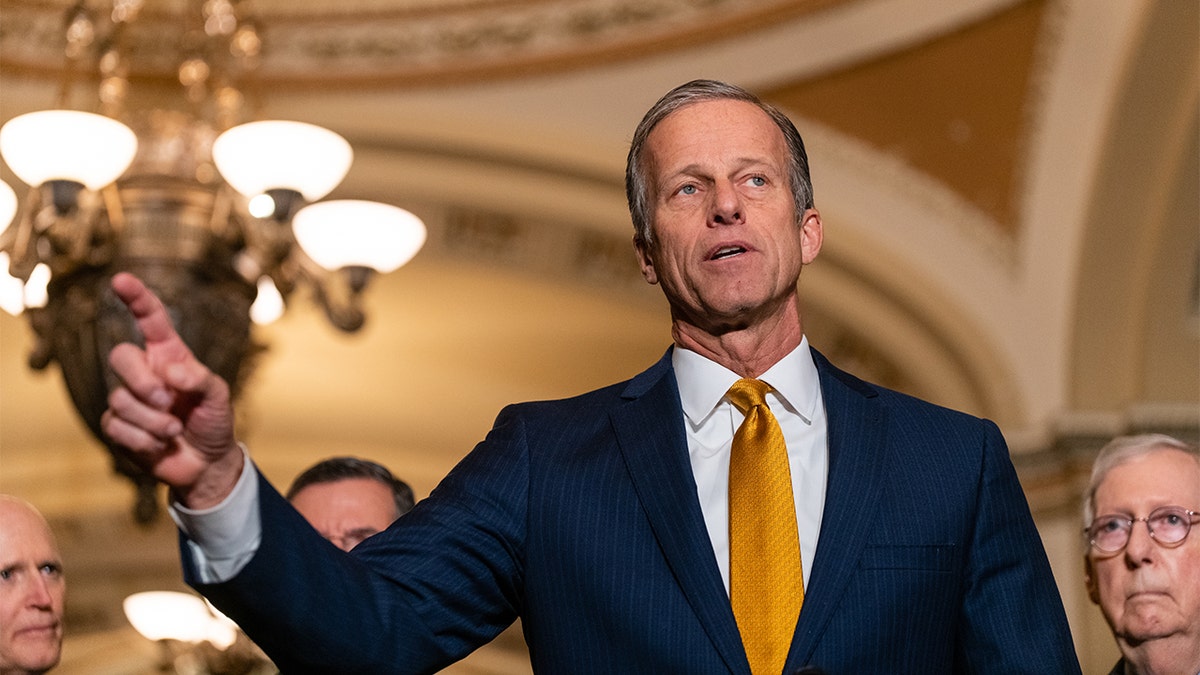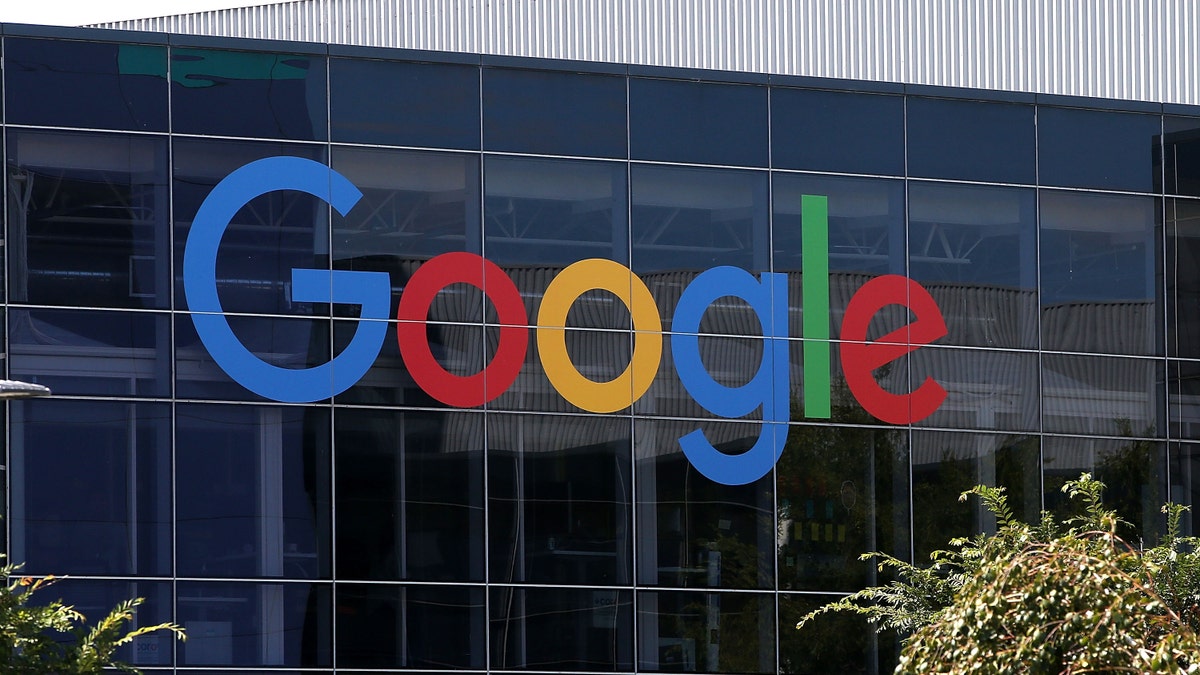Thune says alleged Google discrimination against GOP emails is 'anti-democratic'
Sen. John Thune is introducing a bill to ban email providers from filtering federal political campaign emails to spam.
Sen. John Thune and more than 20 other Senate Republicans are introducing a bill to ban email providers from using algorithms to sort emails sent by federal political campaigns, as they tear into Google for alleged political bias.
The bill from Thune, R-S.D., is a reaction to a study from North Carolina State University that found Gmail sends a much higher percentage of Republican candidates' emails to spam than Democrats. It has the support of the entire GOP leadership team, including Senate Minority Leader Mitch McConnell, R-Ky., and 19 other Republican senators.
Called the Political BIAS Emails Act, the bill would ban email services from applying filtering algorithms to messages from federal political campaigns. Email services like Google also would be forced to provide information to campaigns directly upon request and produce quarterly reports on GOP and Democrat emails going to spam.
REPUBLICANS HIT GOOGLE WITH FEC COMPLAINT OVER GMAIL CENSORSHIP OF FUNDRAISING EMAILS
"Almost 70% of [Republican] political communication was sent to spam," Thune said in an interview with Fox News Digital, referring to the North Carolina State study's analysis of Gmail's practices. "They did a similar analysis of Democratic emails and found that only 8% had been sent to spam. So clearly there was some algorithm that was being used that was manipulating what people were… seeing."
Google denies that it filters emails in a way meant to harm or hurt any specific party.
"We do not filter emails based on political affiliation, and we’re working on increasing transparency data for bulk senders, including campaigns, in our suite of tools for senders," a Google spokesperson told Fox News. "We look forward to working with lawmakers and campaigns to ensure Gmail is providing users with the best experience."
Thune, who's worked on tech legislation in different areas before, said Senate Republicans invited Google representatives to a meeting with their caucus members to discuss the North Carolina State findings. But that conversation didn't go well, he said.

Sen. John Thune speaks during a news conference at the U.S. Capitol in Washington, Dec. 7, 2021. (Eric Lee/Bloomberg via Getty Images)
GOOGLE’S GMAIL CENSORSHIP COST GOP CANDIDATES $2b SINCE 2019, REPUBLICANS SAY, CITING NEW STUDY
"We asked people come in and defend it, and they said, well, you know, that doesn't comport with our data or whatever. But they didn't really offer an alternative," the Senate minority whip said.
"What happened was our members got more and more agitated as they talked about this," Thune continued, "because they didn't have a good explanation for why a consumer shouldn't have the option of making a decision about whether or not, you know, a company sends information based on a filtering algorithm to spam."
The other GOP leadership team members backing the bill are Senate GOP Conference Chair John Barrasso, R-Wyo.; National Republican Senatorial Committee Chair Rick Scott, R-Fla.; GOP Policy Committee Chair Roy Blunt, R-Mo.; and GOP Conference Vice Chair Joni Ernst. R-Iowa.

The Google logo on the company's headquarters on Sept. 2, 2015, in Mountain View, California. (Justin Sullivan/Getty Images)
The rank-and-file members behind the bill are Sens. Marsha Blackburn, R-Tenn.; John Boozman, R-Ark.; Mike Braun. R-Ind.; Kevin Cramer, R-N.D.; Mike Crapo, R-Idaho; Tom Cotton, R-Ark.; Steve Daines, R-Mont.; Deb Fischer, R-Neb.; Josh Hawley, R-Mo.; James Lankford, R-Okla.; Cynthia Lummis, R-Wyo.; Roger Marshall, R-Kan.; Shelley Moore Capito, R-W.Va.; Jerry Moran, R-Kan.; Jim Risch, R-Idaho; Marco Rubio, R-Fla.; Tim Scott, R-S.C.; Tommy Tuberville, R-Ala.; and Roger Wicker, R-Miss.
Thune told Fox News Friday that it's wrong for companies to decide what messages email users should be able to see in their primary inboxes.

Senate Minority Leader Mitch McConnell is joining a bill targeting Google for alleged political discrimination in its email filtering practices. (AP Photo/J. Scott Applewhite)
CLICK HERE TO GET THE FOX NEWS APP
"Google or some other tech platforms should not be telling a consumer what they can and cannot receive when it comes to political communications," he said. "And that to me is just anti-democratic and anti-free market for that matter."
"The evidence suggests that some actors in the tech industry display an undeniable pattern of ideological bias against conservatives," McConnell said in a statement.
It's not clear what the bill's path to passage could be, as Democrats control both the House and the Senate. But with Republicans aiming to take back both the House and Senate in November, the bill could signal that targeting big tech will be on the agenda if they do.






